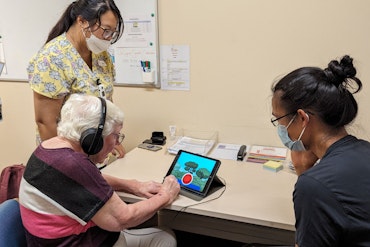Palliative care improved with the help of a checklist
Researchers from Calvary and Australian Catholic University have come together to research, study and create a checklist to address, review and implement the palliative care needs of Australian aged care residents.

New round of study starting using the new palliative care checklist (Source: Shutterstock)
Developed following a previous study into the researcher’s new model of care called Palliative Care Needs Rounds, the checklist proved a way of translating their findings into a practical approach that clinicians across Australia could easily use.
The study, which has been published in the British Medical Journal, was piloted at four residential aged care facilities during 2014-15 where observations and recordings of 15 meetings were made, as well as 13 interviews with staff attending the needs rounds conducted.
Dr Liz Forbat, Professor of Palliative Care, Australian Catholic University and Calvary Health Care says the hope for the checklist is to improve the quality of life, death and dying for aged care residents and to increase staff confidence in looking after people who are in their last six months of life.
“Checklists have been used a lot in clinical practice, with some really important work in surgery settings where checklists have driven up standards of care,” she says.
“So we thought this would provide a useful way of translating our research into practice in a straightforward manner.
“We hope that the checklist will support clinicians across Australia to integrate specialist palliative care into aged care settings.”
She adds that the concept focuses on integrating specialists from palliative care into aged care settings.
The checklist, which is split into sections, offers prompts for residential aged care staff to identify which residents they could talk about at needs rounds, as well as prompts to review residents previously discussed in needs rounds.
“Palliative Care Needs Rounds are triage meetings – where residents who are likely to die without a plan in place to manage their symptoms can be discussed,” Dr Forbat says.
“It is focused on anticipatory planning including advance care planning, managing medications, symptom management, discussion of conflict within the family and liaising with GPs.
“As part of the approach we provide education and support to staff, alongside direct clinical work with residents, liaising with GPs and advance care planning – facility staff can then better support both residents and relatives.”
“Our end point is improving quality of care to older people living in aged care.”
The researchers are currently running a trial with a focus on needs rounds, which the checklist is playing a key role in.
The trial, funded by ACT Health is set to conclude in August 2018























